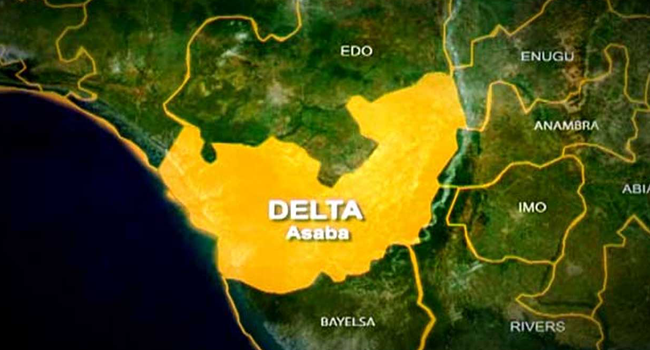The peaceful Amai community in Ukwuani Local Government Area, Delta State, was shattered by a horrific double murder stemming from a land dispute. A 70-year-old man, identified as Aghanti, and his 50-year-old daughter, Atagoshi, a secondary school teacher, were brutally killed and beheaded by an assailant who lured them into the bush under the pretense of discussing the contentious land issue. The discovery of their headless bodies sparked outrage and ignited a firestorm of vigilante justice.
The land dispute, the root of this tragedy, began when Atagoshi purchased a piece of land within the Amai community. This seemingly innocuous transaction triggered a conflict as other individuals subsequently laid claim to the same property. The details of these competing claims and the identities of the other claimants remain undisclosed, adding another layer of complexity to an already convoluted situation. The dispute, unresolved and festering, ultimately escalated into violence, culminating in the gruesome murders of Aghanti and his daughter.
The assailant’s cunning manipulation of the situation is evident in his approach. He contacted Atagoshi, expressing a desire to discuss the land matter and seemingly seeking a peaceful resolution. This deceptive tactic convinced Atagoshi and her father to accompany him into the bush, a decision that tragically sealed their fate. Isolated and vulnerable, they were at the mercy of their killer who carried out the horrific act of murder and decapitation. This calculated betrayal underscores the assailant’s premeditation and the chilling disregard for human life demonstrated in the brutal nature of the killings.
The community’s response was swift and fueled by a thirst for immediate retribution. Vigilantes apprehended a man named Emeke while in possession of two human heads. The discovery ignited the fury of the residents, who promptly took the law into their own hands. Emeke was subjected to mob violence and ultimately set ablaze, a grim example of vigilante justice. Upon closer examination, the heads were confirmed to belong to Aghanti and Atagoshi, seemingly connecting Emeke to the heinous crime. However, the police investigation suggests a more nuanced scenario, with Emeke possibly being an accomplice or involved in the aftermath of the murders rather than the primary perpetrator.
The official police account, provided by Bright Edafe, the Police Public Relations Officer in Delta State, corroborates the sequence of events. Edafe confirmed that the assailant contacted Atagoshi to discuss the land issue, using this pretense to lure her and her father into the bush where they were murdered and beheaded. He further clarified that while Emeke was apprehended with the victims’ heads and subsequently lynched, he is not believed to be the primary suspect. The main suspect, who actually committed the murders, remains at large, with law enforcement agencies actively pursuing their capture.
This tragic incident exposes the fragility of peace in communities grappling with land disputes and the dangers of unchecked vigilantism. While the community’s grief and outrage are understandable, the act of mob justice underscores the need for efficient and trusted legal processes. The lynching of Emeke, potentially an accomplice or opportunist rather than the main culprit, highlights the risk of misdirected anger and the potential for innocent individuals to become victims of mob violence. The ongoing police investigation aims to bring the true perpetrator to justice and restore a sense of security to the shaken Amai community. The incident serves as a stark reminder of the importance of peaceful conflict resolution and the dangers of resorting to violence.


